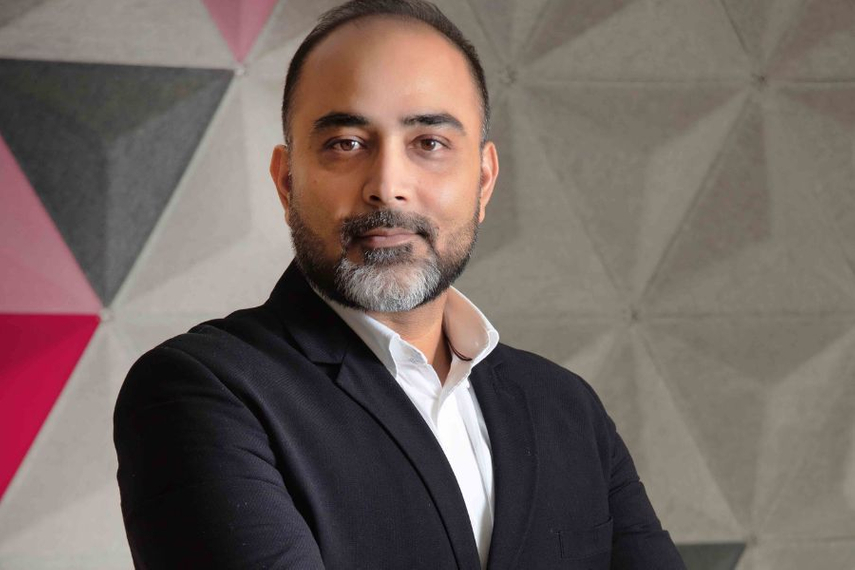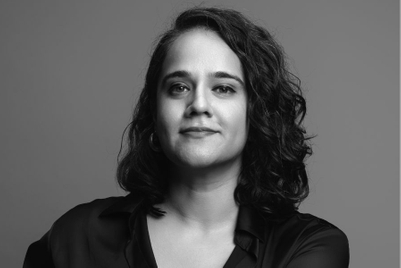
As ibis, the hotel brand from French hospitality chain Accor, celebrates its 50th anniversary, the company is pushing boundaries in India, aiming to solidify its presence in the competitive midscale and budget hotel segment. With a refreshed brand identity and the launch of its global campaign, ‘Go Get It’, it is setting the stage to appeal to a younger, more vibrant audience while staying true to its legacy of affordable, high-quality accommodation.
Animesh Kumar, head of commercials for ibis and ibis Styles India, leads the charge in steering the brand’s growth in one of the world’s most diverse and dynamic markets. He discussed the brand’s strategies, challenges, and aspirations in India with Campaign, offering a window into how the brand is adapting to local preferences while aligning with its global ethos.
Founded in 1974, ibis became the first European hotel brand to offer high-quality stays at accessible prices. Today, it operates across 79 countries, boasting a portfolio of over 2,500 hotels globally.
In Asia, Accor, ibis’ parent company, runs 495 hotels across 13 countries, making it one of the largest international hotel operators in the region. Midscale and economy brands like ibis are at the heart of this expansion, with conversion-friendly models and a strong focus on innovation.
In 2023, ibis had 1,269 hotels with 159,180 rooms in 70 countries. The economy brand is targeting 143 new hotels with 17,474 more rooms by 2027.
For its 50th year, the brand rolled out ‘Go Get It’, a campaign developed with Saatchi & Saatchi London. Launched in October 2024, it aimed at celebrating ibis’ core values of affordability, design, and consistent service.
At its launch, Jean-Yves Minet, global brand president for midscale and economy at Accor, explained, “ibis has remained a leader in the economy segment for 50 years because we know that guests get the most out of their travels when we put the most into their stays.”
Repositioning for millennials and gen Z
Since its entry into India in 2008, ibis has grown to 24 hotels with approximately 4,000 keys. Two more properties are in the pipeline, underscoring the brand’s ambitions in a market where the midscale segment dominates new hotel openings, capturing 46% of the share in the first half of 2024, according to JLL.
For Kumar, who joined ibis in 2021, India’s midscale hospitality market offers significant potential. “The middle class is growing, and people are travelling more,” he noted.
Reflecting on his journey from luxury hotels like Oberoi to economy brands like ibis, he said, “It’s not about economy or luxury—it’s about business fundamentals. Redefining the marketing strategy, target segments, and outreach channels is critical.”
Globally, Accor’s ibis has undergone a transformation to appeal to younger travellers, with bold design updates and an emphasis on music and entertainment as key brand pillars. Kumar elaborated on the challenge of revamping a legacy brand for modern audiences.
“A facelift can be risky, but it’s essential,” he explained. “Apart from standardised room sizes, elements like employee grooming, hotel design, and amenities have been crafted to attract younger guests. We’ve embraced this with features like ibis Music, which offers a platform for emerging artists, and by allowing employees to showcase their individuality through tattoos or ponytails—something unheard of in the hospitality industry.”
This strategy is backed by data. A survey by the company revealed 25% of travellers—and 39% of Gen Z and millennials—are influenced by social media when booking a vacation. “These insights are shaping how we position ibis,” Kumar said.
Localising a global brand
Adapting a global brand to suit India’s diverse consumer base is no small feat. Kumar credits ibis’ partnership with InterGlobe Hotels for facilitating this transition. “InterGlobe brings consistency and a global thought process while integrating regional elements into the design and marketing. For example, our hotels in Bangalore and Thane incorporate local cultural motifs into their interiors,” he said.
Despite its global scale, ibis maintains a distinct identity for its two sub-brands: ibis and ibis Styles. “While ibis caters to a young, business-oriented crowd, ibis Styles focuses on creativity and themed designs. Both target the same demographic but with nuanced differences,” Kumar explained.

Campaigns like ‘Go Get It’ are part of a larger strategy to drive direct bookings, which yield higher margins and build brand loyalty. “It’s a journey,” Kumar said. “Campaigns create top-of-funnel awareness, but the real challenge is moving consumers through the middle and lower funnels to achieve conversions. This process can take six months to a year.”
He cited the ‘Vibe with ibis’ campaign, inspired by a YouGov survey, as an example of a successful localisation effort. “The campaign resonated so well that regional teams used assets we created in other parts of the country,” he said.
Operationally, ibis leverages technology and data to refine its campaigns. “We monitor performance metrics daily, from reach and engagement to conversion rates. Social listening tools help us gauge guest sentiment, which informs our marketing tweaks,” Kumar added.
Collaborations and consistency
One way ibis ensures guest satisfaction is through strategic collaborations. Its recent partnership with Chai Point introduced consistent, high-quality tea across its properties—a nod to the cultural importance of tea in India. “We tested the concept in a few hotels, received positive feedback, and rolled it out nationwide,” Kumar said, hinting at more such collaborations in the pipeline.
In the hospitality industry, where projects are tied to long-term real estate investments, convincing hotel owners to back marketing initiatives can be challenging. “Accor’s owners are forward-thinking, which helps,” Kumar said. “For campaigns requiring immediate ROI, we adjust our approach, but for long-term brand-building efforts, we focus on creating value that lasts beyond immediate returns.”
As India’s hospitality market evolves, brands like ibis must navigate shifting consumer preferences and rising competition. Hotel transactions are expected to reach $430 million in 2024, up from $350 million in 2023, with new hubs emerging as key growth areas.
ibis’ ability to localise its offerings while maintaining global consistency will be pivotal. Campaigns like ‘Go Get It’ are a step in the right direction, but whether they translate into sustained market dominance remains to be seen.
As Kumar put it, “It’s all about amplifying the brand to match consumer expectations. The real test lies in converting awareness into loyalty in a market as dynamic as India.”
The question remains: Can ibis leverage its refreshed identity and marketing campaigns to carve out a stronger position in India’s growing midscale hospitality segment? Only time—and a combination of innovation, localisation, and strategic execution—will tell.


.jpg&h=334&w=500&q=100&v=20250320&c=1)
.jpg&h=334&w=500&q=100&v=20250320&c=1)
.jpg&h=334&w=500&q=100&v=20250320&c=1)


.jpg&h=334&w=500&q=100&v=20250320&c=1)




.jpg&h=268&w=401&q=100&v=20250320&c=1)


.jpg&h=268&w=401&q=100&v=20250320&c=1)




